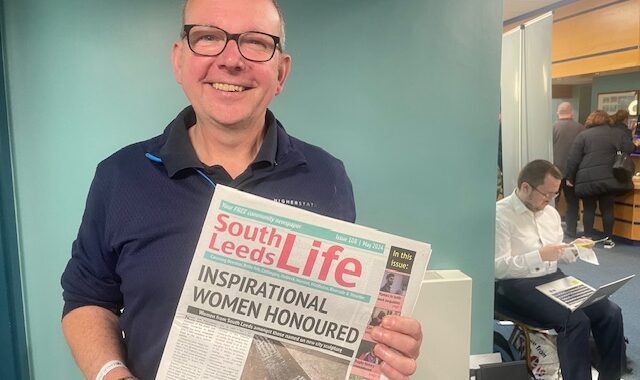
2016 was a remarkable year for those of us working in the media.
Newspaper sales continued to lurch while online traffic figures grew steadily. Sixteen local newspapers closed, (not including quite a few hyperlocals that published their final headlines) bringing the total up to 198 closures since 2005. And only 18 per cent of people trusted the national press to tell the truth.
Rival factions pitched their battle in the no man’s land of press regulation, with still no clear winner.
Social media changed everything, as fake news stories, mainly benefitting far right parties, proliferated, and we learned we were all living in filter bubbles and echo chambers.
And the media was pummeled mercilessly for its failure to accurately report and predict the outcome of both the Brexit vote and the US election.
But while 2016 threatened to do away with the press like it did with so many beloved celebrities, there remains a hope that, like the Kardashians, it will be around for many, many more years to come.
So how do we help build a media that works for us, for our communities? How can we engage and participate in the new media landscape? How do we support journalism that matters?

Subscribe to your independent community newspaper. They provide a valuable service to the community and they need your help to survive.
Most hyperlocals are put together by individuals with no formal training, no newsrooms, legal masterminds or sales teams behind them. They’re doing it, often, from their kitchen table or settee, while managing full-time jobs and family commitments.
You can find a comprehensive list of hyperlocal publications here, and here.
If you’re a business, advertise with them. Many have circulations that rival the traditional regional or local newspapers in your area. You could be missing a vital market for your product.
Talk to local journalists. Build a relationship with them and tell them what kind of stories matter to you.
Contribute to your local community project or action group. Subscribe to newsletters.
Buy newspapers. Donate money, either directly, or through foundations such as The Media Fund.
Be bold enough to put your trust in the press again. Despite the scare stories and the fake news train gathering steam, newspapers print hundreds of thousands of individual facts each day. What’s staggering therefore, is not the amount they get wrong, it’s the amount they get right.
For your hyperlocal or community newspaper, this fact is even more overwhelming. Considering that most hyperlocals are put together by non-journalists, untrained hobbyists, with more passion than pitman, putting together a newspaper full of facts, for free!
Volunteer. Many hyperlocals rely on members of their community to provide them with news, tip-offs, pictures and videos. Gone are the days you’d bump into a local hack in the corner shop soliciting gossip. Everyone’s got a story and every hyperlocal is eager for juicy content.
Better yet, write the story yourself. Go to a council meeting. Report on the recent planning application for a megastore to build on the local playground. Submit it. It doesn’t have to be Shakespeare; if it’s good enough, and important enough, they’ll rewrite it. Holding power to account has never been more simple.

It’s never been easier to be a publisher. With the vast array of publishing tools available online, the boundaries for becoming a citizen journalist are nil. Facebook, Twitter, Instagram, Tumblr, Medium etc., are child’s play when it comes to uploading content. Mobile devices make it simple to record, edit and publish video online. And many of us are already producing stories of our own without even realising it, in the shape of Instagram and Snapchat stories.
The Centre for Community Journalism has a free community WordPress theme available for download. The template has been designed with hyperlocals in mind so is easily customisable, even with little technical knowledge, and contains features such as a scrolling headline area, built-in news categories, social links, and advertising space. It’s also a responsive design so it looks great on laptops, tablets and mobile phone screens.

There are lots of free and cheap courses for individuals who want to get involved in publishing community news. The National Union of Journalists, The Centre for Investigative Journalism and Journalsim.co.uk all offer valuable workshops in all kinds of journalism, from data journalism for community publishers to faith reporting in the news. The Centre for Community Journalism also regularly updates its website with relevant social media tips, writing guides, and how-tos on the newest tech trends.
Learn how to submit freedom of information requests, shoot video, write human interest stories that engage with your readers; find out what you can and can’t print, where to source images and how to become an SEO master.
These valuable workshops can help you build the skills, confidence and knowledge to become a competent publisher in your own right.

In late 2016 the Centre for Community Journalism hosted a series of consultations on the formation of a representative network for community publishers.
Over the last half decade, the hyperlocal news sector has grown at an astonishing rate – there are now more than 400 independent community publications across the UK.
However, we have come to realize there is no strength in these numbers. Many long-standing problems persist; namely a lack of sustainable revenue streams, accreditation, legal support and advocacy.
That’s why the C4CJ decided to reach out you see if we could provide a formal framework to represent the sector.
In doing so, we expect to provide training and networking, lobbying and advocacy, and over the next few weeks, to launch an online discussion forum for hyperlocal and community news publisher to get together to discuss best practices, share information, and talk about the future.
So far we have received very positive feedback and will soon be accepting applications from relevant publishers.
Moreover, if you want a democracy that works for you, you have to participate and engage. Invest your time, money, and expertise and own the media.
This article was inspired by a similar article by Josh Stearns, which can be read here




